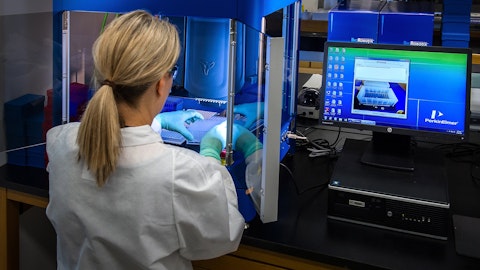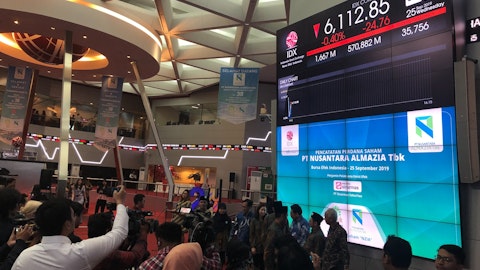Kerry Holford: A couple of questions on vaccines please. Firstly, on RSV, can you confirm you’re on track to provide that second season of data ahead of approval and reimbursement discussions in May-June for the older adult vaccine? And can you confirm whether you’ve now filed your maternal RSV vaccine with the regulator? If not, are you waiting for the approval in the older adult setting first? And then just on the flu/COVID combo, if we assume you have positive flu Phase 3 data in the second half of the year, positive Phase 1 combo data in the first half, would you expect to move the combo into Phase 3, or is that the possibility you will not need a full Phase 3 combo study to proceed to filing an approval? Thanks.
Dr. Albert Bourla: Mikael?
Dr. Mikael Dolsten: Yes. I mean, we always follow multi-seasonal vaccines and we’ll share the second season data as soon as it’s available. Of course, there are many ways this can play out with combination vaccines and which could lead to more regular vaccination rather than protracted. And on — you also asked about the, let’s say, the flu/COVID combo here.
Chris Stevo: Will we need a full Phase 3 trial or
Dr. Mikael Dolsten: So if we need a full Phase 3, if we have both flu and COVID? We expect that you need a Phase 3 that is based on immunogenicity and safety and not a large trial based on events. So, we think we can complete that fast. And if anyone can do it first, it’s we. So, that’s very high on our list currently pending data to move with light speed in.
Dr. Albert Bourla: Right. And there was a question on reinvestment of RSV question I think.
Dave Denton: Yes. I think, Kerry, you asked the second season durability data, how that will impact reimbursement discussions
Dr. Albert Bourla: Yes. I think it will impact ACIP recommendation in vaccines. Once you have ACIP recommendation or not, you’re getting automatic actions with all formularies without co-pay. So, that, I think it will be the key what ACIP will say. And let’s go to the next question, please.
Operator: Our next question will come from Andrew Baum with Citigroup
Andrew Baum: On Paxlovid, following commercial approval and the withdrawal of the EUA, will pharmacist prescribing remain intact? And then a couple for Mikael. Could you just explain the reasons for the out-licensing of the TL1A inhibitor to Roivant? I apologize if I missed it. And then second, in relation to your multispecific antibodies, your trispecifics, this has been tried previously, I think AbbVie and J&J previously tried in RA, and I think in psoriasis with TNF IL-17s but they ran into an issue with binding affinity and they didn’t have efficacy. Do you think you’ve managed to solve the issue here?
Dr. Albert Bourla: Andrew, the first one is simple, I don’t know if the pharmacist will. It’s very unlikely, I think. But I don’t know, we don’t have it in our assumptions right now. And let’s go to Mikael.
Dr. Mikael Dolsten: I’ll start with, Andrew, great question. You touched my heart today. We have cracked it. These antibodies that I shared today have, first of all, pharmacokinetics like an excellent single antibody but 3-in-1 product and have very high potency, which you asked about, actually exceeding the marketed product substantially. So, we think it’s really something that we will move very quickly as we learn more of it. And you asked about TL1A. We think we have a very good partnership with Roivant that helps us to do more things within our pipeline. And you’ve heard Aamir Malik earlier alluded to that we have commercialization rights ex U.S., Japan. We have about half of the value of this product. And we have a follow-on bispecific TL1A p40 that’s active mechanism of STELARA. So, we think we have such a richness in this space and really enjoy to build the ecosystem with others and maximize what we bring to patients.





